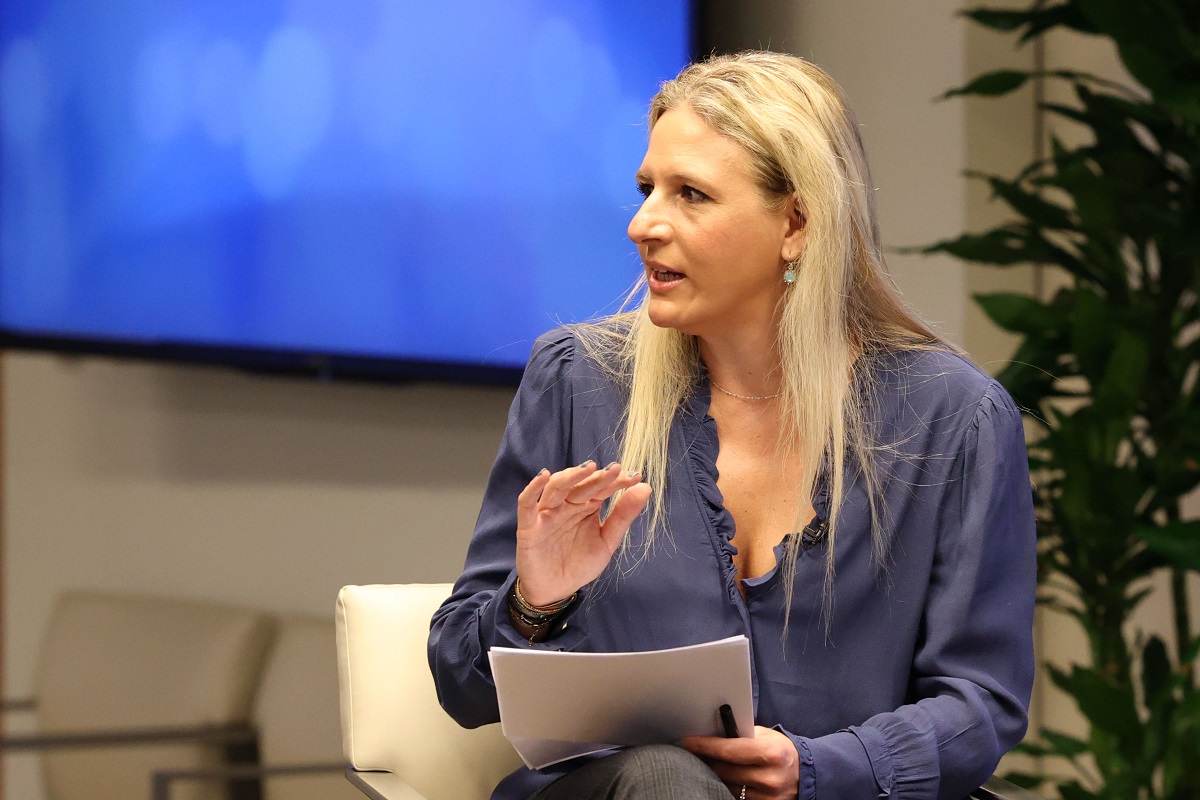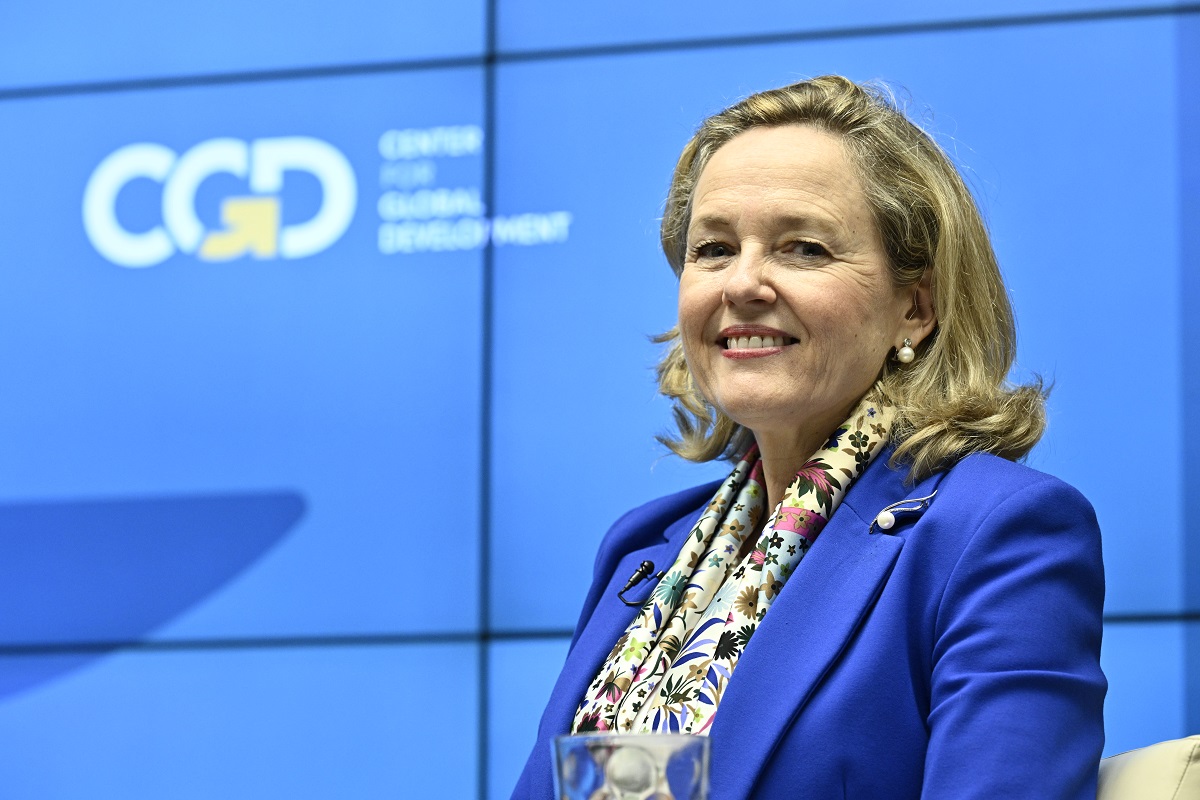On 16th September 2020, European Commission President, Ursula von der Leyen, delivered her first State of the Union (SOTEU) speech, setting the tone for the rest of her five-year term. With a wide-ranging set of actions, she proclaimed the Commission’s intent to seize the moment, use the money available, and increase its powers to help “build the world we want to live in.” However, while not short of ambition for Europe’s citizens, von der Leyen’s frequently espoused aspiration for the EU to become a leading global player was, to an extent, a whitewash. Her speech offered little more than platitudes to the EU’s partner countries. In this blog, we look at what’s missing from von der Leyen’s speech and outline what it should have said for her to fulfil her aspiration of a “geopolitical Commission.”
Building back better: Von der Leyen’s vision for a new and stronger Europe
Inspired by the State of the Union address delivered most years by the US president, the European counterpart attempts to render the EU more transparent as it sets the Commission President’s vision and legislative proposals for the year ahead.
Top of the list was Europe’s path to recovery, beginning with current and future health threats. Von der Leyen called for the strengthening of the European Medicine Agency and the European Centre for Disease Prevention and Control (ECDC), as well as for the creation of a new agency for biomedical advance research and development. She also announced a Global Health Summit to be organised with Italy in 2021.
On the social front, she proposed that Member States set up a framework for minimum wages across the EU. On climate, she set out a more ambitious 2030 target for the reduction of greenhouse gas emissions—raising the bar from 40 percent to at least 55 percent compared to 1990 levels. To make this happen, 37 percent of the EU’s €750 billion Recovery Fund (Next Generation EU) will be dedicated to climate objectives. She also highlighted her intention to make the next 10 years Europe’s Digital Decade. Twenty percent of the EU’s Recovery Plan will be invested in digital projects, ranging from the creation of a European cloud securing personal data to the expansion of 5G and the development of supercomputers.
On the international stage, von der Leyen explicitly renewed the EU's commitment to multilateralism. While showing support for the UN, WHO, or WTO, she expressed her willingness to reform these institutions, but with no detail of how. And beyond Europe’s borders, she issued a plea for qualified majority voting on foreign policy—a long-standing stalemate issue for the Member States—and for Europe to take clear positions and quick actions including sanctions targeting individuals suspected of human rights abuses.
While the president succeeded in drawing a compelling picture of how the EU’s swift and generous COVID-19 response is a reflection of European solidarity, her policy proposals stopped short at the continent’s borders.
A geopolitical Commission without a global agenda
In presenting the Commission’s programme last autumn, von der Leyen called for Europe to be the “shaper of a better global order” through new and better coalitions and partnerships. To signal this, she made Ethiopia the destination for her first official state visit outside the EU and announced the birth of “the geopolitical Commission.” Little less than a year and a SOTEU speech later, the EU’s global ambitions continue to remain elusive. Geopolitics has been reduced to the fragile relationship with China and a bid for a renewed transatlantic alliance. While von der Leyen did demonstrate strong commitment to the European neighbourhood—Western Balkans and the Eastern partner countries, and outspoken support for the people of Belarus—she failed to offer a compelling vision for Europe’s soft power, including global alliances and equal partnerships. In her speech, Africa appeared to be little more than a side-note. (Last year, CGD published a roadmap for an EU-Africa partnership of equals, setting out how the European Commission could turn this aspiration into reality.)
The absence of Commission proposals on how to create a truly global Europe is not only in stark contrast to von der Leyen’s strong, even bold proposals on a variety of domestic policy issues, but even more remarkable in the midst of a pandemic and a global recession. Preliminary calculations suggest that global poverty will rise by over 50 million people in 2020 compared to 2019, and by almost 75 million compared to what forecasters at the end of 2019 had expected to happen. COVID-19 has demonstrated the extent to which functioning economies and societies depend on the stability and prosperity of the interconnected world.
Undoubtedly, given the absence of a genuine common European foreign and security policy, there were always going to be limits to von der Leyen’s geopolitical Commission. Nevertheless, stability, protection, and opportunity—the three big themes of von der Leyen’s SOTEU—cannot be divorced from Europe’s global responsibilities and opportunities. Put in her candidacy speech in November 2019, but conspicuously absent from her SOTEU speech, von der Leyen said, “We will strengthen our partners through cooperation, because strong partners make Europe strong too.”
What von der Leyen should have said
Implicit in von der Leyen’s speech was that the strength of the EU lies in the sum of its parts, but only if these are working together towards the same ends. In combination, the EU is a principal global player both economically and politically. This power not only provides opportunity but also bestows responsibility for it to be used to the benefit of all humanity. There is no doubt that the EU’s ambition to be more geopolitical is hindered by the unanimity requirement which means that EU foreign policy frequently boils down to the lowest common denominator, especially on thorny issues like sanctions or human rights. Nevertheless, the EU has considerable oft-forgotten soft power strengths which it could use to positively influence the many global challenges that we face. Little mention was given to these strengths, nor how the EU could capitalise on them to lead the way in global recovery.
And yet, Europe’s scale and scope, as collectively the world’s largest development actor; its social face rooted in EU values that interconnect economic and social progress alongside environmental improvement; its openness to partnerships and initiatives and unwavering commitment to multilateralism and a rules-based system of global governance - all uniquely position it as a global standard-setter, convener, and bridge-builder.
There is no doubt that COVID-19 has brought a new reality to thinking about the financing of healthcare at a global level. To stop re-infection and suppress second-wave outbreaks, all countries need resilient health systems, and the weakest systems, particularly in Africa, need the most urgent investment. Some of this investment is precautionary (health security “insurance”, or surge capacity), to mitigate the catastrophic risk of health systems being overrun by future pandemics, but the majority of the investment needed is simply to bring them up to minimal levels of operational effectiveness. It is, therefore, sustained support to Europe’s developing country partners which will be essential. With its scale, human-centred approach, and its longer financial planning frameworks, the EU is well placed to do this.
Furthermore, the scope for innovations, regarding both processes and technologies, to improve living standards is arguably greatest in Africa. The EU can play a central role in exporting innovations in city design, IT infrastructure, renewable energy use, and local entrepreneurship, alongside investment in social services. To take just one example of where cross-sectoral approaches are needed, accelerating digital work and learning opportunities requires not just massive investment in broadband infrastructure networks, but less visibly and more patiently, in related secondary general and technical education attainment.
The EU should increasingly follow the example set by the politically, technically, and economically attractive programmes it has already designed in the context of its own internal-interests programmes, which are surprisingly disconnected from its development cooperation, all too often treated as a separate silo. The SOTEU reinforces this disconnect having failed to recognise that internal and external are two sides of the same coin.
One year in: it’s time for von der Leyen to turn ambition into reality
The stakes were high for von der Leyen on the eve of her State of the Union address. Building on the €1.8 trillion package combining the EU budget for the next seven years and the Recovery Plan, the EU has provided itself with significant means to “build back better.” However, having repeatedly espoused that “none of us is safe until all of us are safe,” she failed to offer a compelling narrative for the EU’s leadership beyond its borders through its unique soft power capabilities. And there is no shortage of opportunities for the EU to take decisive action. The EU-African Union (AU) Summit postponed to 2021 offers the European Commission an opportunity to rethink its approach and start connecting its external and internal action.
Disclaimer
CGD blog posts reflect the views of the authors, drawing on prior research and experience in their areas of expertise. CGD is a nonpartisan, independent organization and does not take institutional positions.





